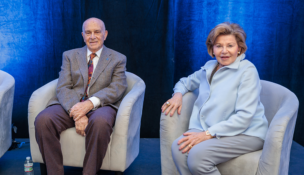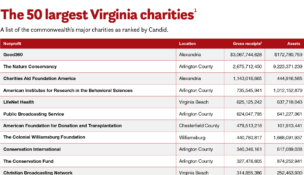NIL no longer nil for college players
Ryan McKinnon //November 29, 2021//
Now that the NCAA is allowing student athletes to make sponsorship deals and capitalize on their fame, Virginia Tech is working to ensure its students don’t get left behind or taken advantage of.
The NCAA rule change, which went into effect July 1, allows athletes to profit from the use of their names, images and likenesses (NIL), which means college athletes who were once forbidden from accepting compensation can now snag paid gigs promoting products.
To help players navigate this new entrepreneurial landscape, Virginia Tech in June launched a program called JumpStart, which offers a mix of business training, brand development, mentorships and career preparation.
“We are thrilled to launch JumpStart in order to connect our student athletes with the tools and knowledge to expand the impact of their personal brand,” Virginia Tech Director of Athletics Whit Babcock said in announcing the initiative.
Tech is also working with INFLCR (pronounced “influencer”), an app that helps connect student athletes to brands hiring athletes for social media marketing.
While a handful of collegiate stars can attract big-time sponsors, there are plenty of smaller opportunities for lesser-known athletes. For example, Virginia Tech football center Brock Hoffman helped arrange a deal with Mission BBQ restaurant in Christiansburg, where the entire offensive line now eats once a week.
“As an offensive lineman, I am assuming I am not going to sign some $30,000 deal, so I am going to take what I can get,” Hoffman says. “It’s a consistent meal and it’s a good meal.”
Hoffman says many of the deals he saw on INFLCR ranged from $200 to $1,000 for making a certain number of social media posts per month.
But it’s not only about players making money. Hoffman also struck a deal with Wytheville-based Bob Huff Chevrolet Buick GMC and Huff Ford to donate 325 book bags emblazoned with his “BH” logo to kids in Wytheville and in his hometown of Statesville, North Carolina.
At Tech, school officials can’t arrange deals for athletes, Associate Athletics Director of Strategic Communications Pete Moris says, but under the new NCAA rules, a third-party agent can help negotiate deals.
As money-making opportunities for student athletes evolve, high school recruits will begin evaluating colleges based on the business possibilities. The impact on recruitment is inevitable, so schools like Tech are refining their pipelines for students to tap into the newly established sponsorship deals.
s

















